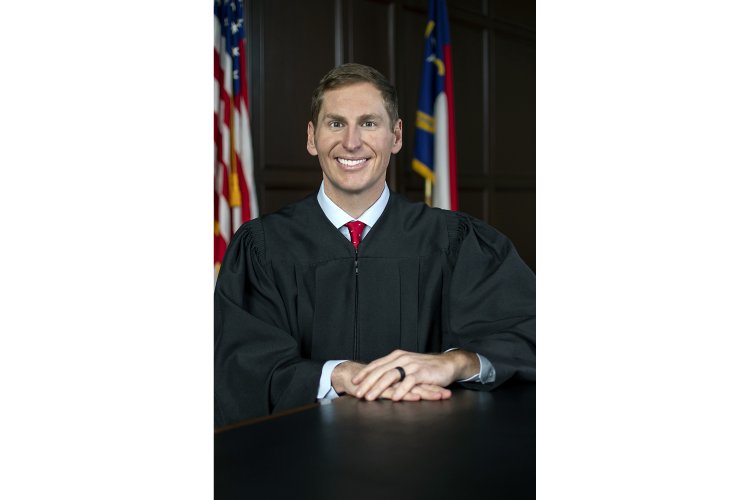Republican admits defeat in prolonged North Carolina judicial race, yielding to Democratic incumbent
The North Carolina Supreme Court election marked the final undecided race in the 2024 elections across the country.

Griffin announced through a campaign statement to The Associated Press that he would not pursue an appeal of Myers' ruling. His concession paves the way for Riggs to officially serve an eight-year term as an associate justice.
"While I do not fully agree with the District Court's analysis, I respect the court's holding — just as I have respected every judicial tribunal that has heard this case," Griffin stated. "I will not appeal the court's decision."
Judge Myers provided a seven-day delay for Griffin to consider appealing his decision to the 4th U.S. Circuit Court of Appeals. Meanwhile, Democrats had urged Griffin to accept his defeat.
As one of two Democrats on the seven-member state Supreme Court, Riggs' victory contributes to the party's efforts to regain a majority in the court in the coming years. Griffin, who currently serves as a state Court of Appeals judge, has a term that runs until 2028.
"I wish my opponent the best and will continue to pray for her and all the members of our court system here in North Carolina. I look forward to continuing to serve the people of North Carolina," Griffin expressed.
The North Carolina Supreme Court election was the last undecided race in the national 2024 general election, despite the Associated Press declaring over 4,400 winners.
Myers determined that Griffin's attempts following the November 5 election to exclude ballots deemed ineligible by state appeals courts could have violated federal due process or equal protection rights for impacted voters if carried out.
Griffin initially protested regarding more than 65,000 ballots, but subsequent state court rulings narrowed this to two categories, affecting between 1,675 to 7,000 ballots. He aimed to remove ballots he claimed were unlawfully cast in hopes of changing the election outcome.
Democrats and voting rights advocates expressed concern over Griffin's actions, particularly as one ballot category specifically targeted six Democratic-leaning counties. They criticized this as an assault on democracy and a potential roadmap for the GOP to challenge election results in other states. Griffin insisted that his legal actions were focused on "upholding the rule of law and making sure that every legal vote in an election is counted."
Most ineligible ballots identified by state appeals courts originated from military or overseas voters who failed to submit proper photo identification or exceptions with their absentee ballots. These courts had allowed a 30-day "cure" period for these voters to provide the necessary ID information and still have their votes counted.
Myers, nominated by President Donald Trump, sided with Riggs and her supporters, ruling that the "retroactive invalidation" of these ballots would infringe upon the rights of service members and others abroad who voted under the established rules for the 2024 election.
"You establish the rules before the game. You don't change them after the game is done," Myers noted in his order.
The other category involved ballots from overseas voters who had never lived in the U.S. yet were designated as North Carolina residents due to their parents' status. Although state law allowed these individuals to vote in state elections, appeals courts ruled this practice unconstitutional, stating there was no way for mistakenly listed individuals to challenge their ineligibility, thus imposing "an unconstitutional burden on the right to vote."
Griffin remarked that the rulings from state appeals judges still acknowledged the state election board's failure to comply with laws and the state constitution.
"These holdings are very significant for securing our state's elections," he stated.
James del Carmen for TROIB News












